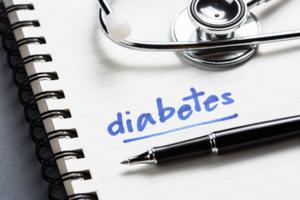Health Advice
/Health

Congress looks to ease restrictions on veterans' use of non-VA clinics and hospitals
WATERLOO, Iowa — John-Paul Sager appreciates the care he has received at Department of Veterans Affairs hospitals and clinics, but he thinks it should be easier for veterans like him to use their benefits elsewhere.
Sager, a Marine Corps and Army veteran, uses his VA coverage for non-VA treatment of back injuries stemming from his military ...Read more

Bill of the Month: A tourist ended up with a wild bat in her mouth -- and nearly $21,000 in medical bills
In retrospect, Erica Kahn realizes she made two big mistakes.
The first was choosing to temporarily forgo health insurance when she was laid off from her job.
The second was screaming when a wild bat later landed on her face.
The bizarre encounter happened last August, while the Massachusetts resident was photographing the night sky during a ...Read more

As California's behavioral health workforce buckles, help is years away
If you or someone you know may be experiencing a mental health crisis, contact the 988 Suicide & Crisis Lifeline by dialing or texting “988.”
____
REDDING, Calif. 𑁋 This spring, the Good News Rescue Mission, which runs the only emergency homeless shelter in Shasta County, received a game-changing $17.8 million state grant to build a ...Read more

Health officials report first measles case in Idaho Panhandle since '91
An unvaccinated child who lives in Kootenai County was diagnosed with measles just weeks after the virus was found in the area’s wastewater. It’s the second confirmed case of measles in Idaho this month.
The case also marks the first confirmed measles case in the Idaho Panhandle since 1991, according to a news release Tuesday from the ...Read more

Nonprofit hospitals spend millions on stadium naming rights, raising eyebrows
Nonprofit hospital systems across the country are spending millions to plaster their names on sports stadiums and arenas, even as federal Medicaid cuts and economic uncertainty cloud their financial futures.
Health care systems and hospital groups have bought naming rights at ballparks and arenas in states such as California, Florida, Georgia, ...Read more

'Japanese walking' promises big health gains in 30 minutes. Health experts are skeptical
It promises the benefits of a 10,000-step walk in just 30 minutes. No gym membership required. Just a pair of shoes and a willingness to alternate between brisk and slow-paced walking in three-minute bursts.
Dubbed "Japanese walking," the latest viral fitness trend is all over TikTok and has people wondering whether this short-interval workout ...Read more

New tuberculosis case detected in Northern California. Here's who is at risk
SACRAMENTO, Calif. — After a case of contagious tuberculosis was identified at a popular Yolo County tribal casino, Californians may be concerned whether they’re at risk of catching the deadly disease.
The individual with contagious TB was recently detected at Cache Creek Casino Resort, prompting Yolo County health officials to conduct ...Read more

Washington malaria case prompts further study of region's mosquitoes
SEATTLE — Local health officials are still investigating how a Pierce County woman who hadn't traveled recently might have contracted malaria — but however it happened, the situation involved an unusual sequence of events."
The case is rare for a few reasons, said Dr. James Miller, health officer of the Tacoma-Pierce County Health ...Read more

Hospital food is often unhealthy. This program is changing that
PHILADELPHIA -- Nutritious snacks like dried mango slices, roasted edamame beans, and sweet potato tortilla chips are easier to find than traditional junk food options in vending machines at the Hospital of the University of Pennsylvania.
HUP’s machines are just a few of the 322 so-called “healthier vending machines” now offered at ...Read more

With COVID-19 cases on the rise, shifting federal guidelines spark widespread confusion over vaccine eligibility
Aaron Hardwick woke up one Tuesday in June and immediately knew something was wrong. He felt hot, and his stomach hurt. He soon tested positive for COVID-19.
“The fever, the insomnia and the chills, and the shaking, was out of this world,” said Hardwick, 45, of Chicago. “That was something I’ve never had before in my life.”
Hardwick ...Read more

Sorting out COVID vaccine confusion: New and conflicting federal policies raise questions
If you want a COVID-19 shot this fall, will your employer’s health insurance plan pay for it? There’s no clear answer.
Health and Human Services Secretary Robert F. Kennedy Jr., a longtime anti-vaccine activist, has upended the way COVID vaccines are approved and for whom they’re recommended, creating uncertainty where coverage was ...Read more

Ask the Pediatrician: Diseases spread by mosquitoes and ticks -- Information for families
Infectious diseases spread by insects are a major cause of illnesses to children and adults worldwide. As you spend time with family outdoors, keep everyone safe with knowledge of the diseases spread by mosquitoes and ticks.
Besides being itchy annoyances, mosquito bites can transmit a number of diseases such as West Nile virus and La Crosse ...Read more

Wildfire smoke increases risks of dementia, asthma and other ailments, UM researchers say
DETROIT — The wildfire smoke that has blanketed the state this month could take a toll on the health of Michiganians long after clearing.
The particles that form plumes of wildfire smoke are small (the average human hair is at least 30 times larger). That means they can seep into our blood, where they pose a triple threat to our lungs, hearts...Read more

Venus Williams exposed all that's wrong with health insurance
Venus Williams returned to the professional tennis circuit in July with a win in the first round of the DC Open. (She lost in a late round.) In an interview on the court following the match, the 45-year-old made a somewhat surprising admission on why she decided to return to competitive tennis. “I had to come back for the insurance because ...Read more

Work requirements and red tape ahead for millions on Medicaid
Now that the Republicans’ big tax-and-spending bill has become law, new bureaucratic hurdles have emerged for millions of Americans who rely on Medicaid for health coverage. A provision in the new law dictates that, in most states, for the first time, low-income adults must start meeting work requirements to keep their coverage.
Some states ...Read more
Top German pharma Boehringer wins US approval for cancer drug
Boehringer Ingelheim GmbH won approval in the U.S. for its drug to treat a challenging form of lung cancer, offering a growth avenue for the privately-held German pharmaceuticals company.
The drug, called zongertinib, can now be used on patients with HER2-mutant non-small cell lung cancer who have already received chemotherapy, according to a ...Read more

In letter, US senators admonish UnitedHealth after second major cyberattack in a year
Another major computer breach involving UnitedHealth Group has prompted two U.S. senators this week to query the health care giant about the adequacy of its cyber defenses.
Episource, a UnitedHealth subsidiary, had its systems hacked last winter, exposing the data of 5.4 million people.
The cyberattack appears to be the second-largest U.S. ...Read more

NYPD Commissioner Tisch calls on state to do more to combat NYC's mental health crisis
NEW YORK — NYPD Commissioner Jessica Tisch called on Albany to do more to help those suffering from mental illness, who, she said, are the ones causing the random, violent attacks that plague the city — because “it can’t be the police department always being called to do everything.”
“We need capacity in our hospitals to care for ...Read more

Malaria possibly contracted in Washington state, would be state's first local case
SEATTLE — A woman in east Pierce County contracted malaria despite not having traveled out of state recently, according to the Tacoma-Pierce County Health Department.
The woman was diagnosed with malaria Saturday and is receiving treatment, a news release states.
If the investigation finds the woman contracted the disease from a mosquito in ...Read more

Mayo Clinic researchers find 'sugar coating' cells can protect those typically destroyed in type 1 diabetes
ROCHESTER, Minn. — Scientific breakthroughs in one disease don't always shed light on treating other diseases. But that's been the surprising journey of one Mayo Clinic research team. After identifying a sugar molecule that cancer cells use on their surfaces to hide from the immune system, the researchers have found the same molecule may ...Read more
Popular Stories
- With COVID-19 cases on the rise, shifting federal guidelines spark widespread confusion over vaccine eligibility
- Sorting out COVID vaccine confusion: New and conflicting federal policies raise questions
- 'Japanese walking' promises big health gains in 30 minutes. Health experts are skeptical
- New tuberculosis case detected in Northern California. Here's who is at risk
- Bill of the Month: A tourist ended up with a wild bat in her mouth -- and nearly $21,000 in medical bills








